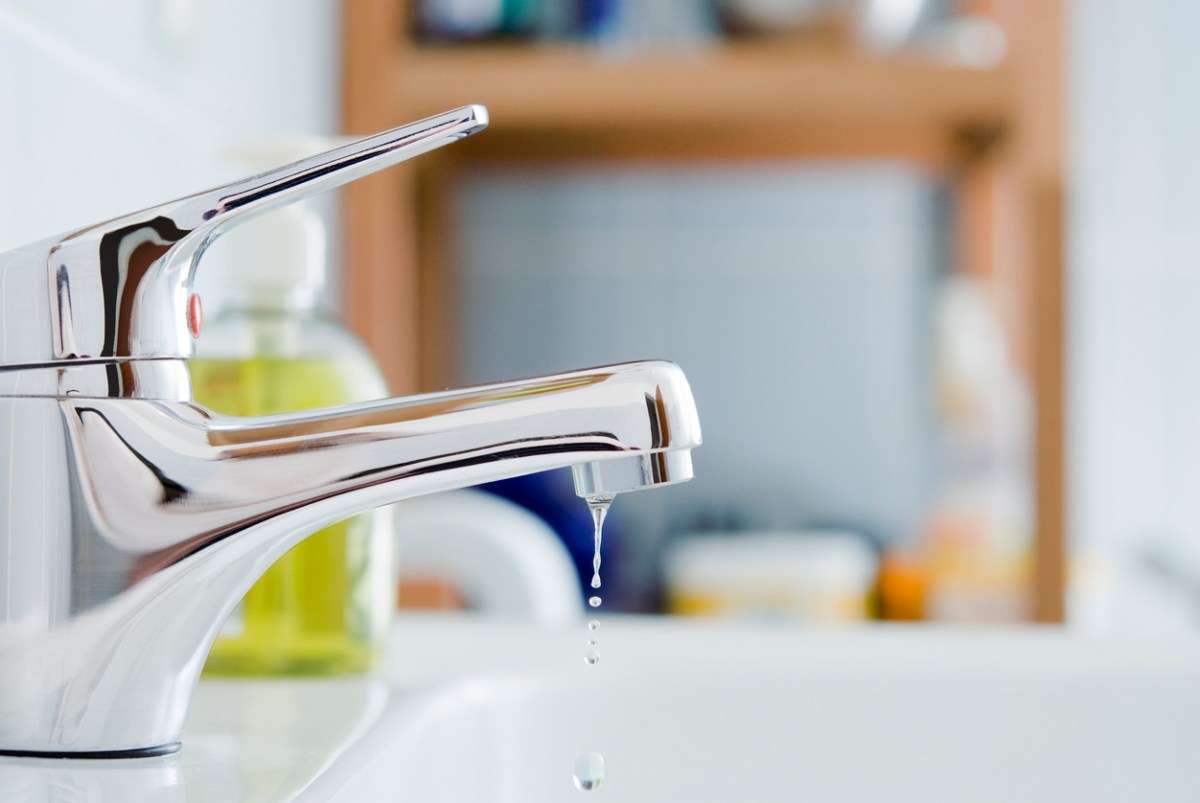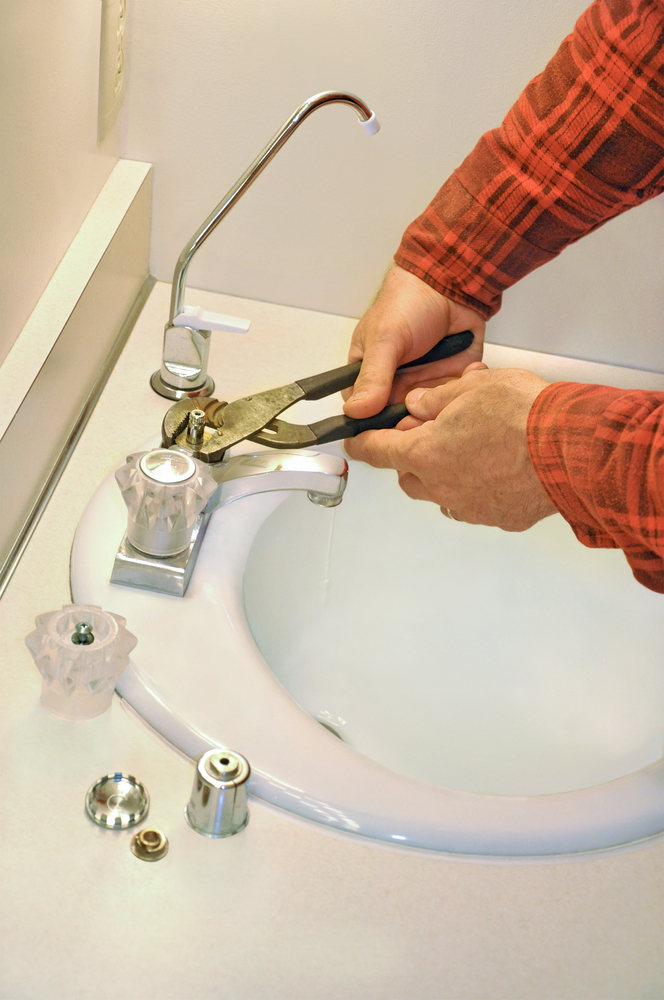Learning the Significance of Dealing with a Faulty Faucet
Learning the Significance of Dealing with a Faulty Faucet
Blog Article
Are you on the lookout for facts about Why It's Important to Fix Leaky Faucets?

Dripping faucets might look like a minor inconvenience, but their influence exceeds just the aggravation of the audio. From drainage to sustaining unnecessary economic prices and wellness threats, overlooking a leaking faucet can bring about various consequences. In this write-up, we'll look into why it's important to address this usual household concern immediately and successfully.
Waste of Water
Environmental Impact
Leaking taps add significantly to water wastefulness. According to the Epa (EPA), a solitary tap leaking at one drip per secondly can squander more than 3,000 gallons of water each year. This not just pressures water sources but also impacts ecosystems and wildlife depending on them.
Step-by-Step Guide to Repairing a Dripping Tap
Tools Required
Before attempting to repair a leaking tap, collect the required tools, consisting of an adjustable wrench, screwdrivers, substitute components (such as washing machines or cartridges), and plumber's tape.
Usual Tap Issues and Their Solutions
Determine the kind of tap and the details concern causing the drip. Typical issues consist of worn-out washers, rusty valve seats, or faulty O-rings. Refer to maker guidelines or online tutorials for step-by-step advice on repair services.
Financial Expenses
Enhanced Water Expenses
Beyond the environmental impact, dripping taps can blow up water bills significantly. The accumulated wastage over time equates right into higher utility expenditures, which can have been avoided with timely repair services.
Possible Home Damages
Furthermore, long term leaking can bring about damage to fixtures and surface areas surrounding the faucet. Water buildup can cause staining, corrosion, and even structural problems if left neglected, causing extra repair prices.
Health Issues
Mold and Mold Development
The constant existence of wetness from a leaking tap creates a suitable setting for mold and mildew and mildew growth. These fungi not only compromise interior air top quality yet additionally present health risks, specifically for people with respiratory system conditions or allergies.
Waterborne Conditions
Stagnant water in dripping taps can end up being a breeding place for bacteria and various other virus, increasing the danger of waterborne conditions. Impurities such as Legionella germs thrive in stationary water, possibly causing serious ailments when consumed or inhaled.
DIY vs. Professional Repair service
Pros and Cons of DIY Fixing
While some might attempt to deal with a dripping tap themselves, DIY repair services come with their own set of difficulties. Without appropriate knowledge and devices, DIY attempts can intensify the problem or cause incomplete repairs, extending the problem.
Benefits of Hiring an Expert Plumber
Hiring a professional plumber makes sure that the underlying source of the trickling tap is resolved effectively. Plumbings possess the know-how and tools to identify and fix faucet concerns effectively, conserving time and decreasing the danger of further damage.
Environmental Obligation
Private Contribution to Preservation
Taking duty for fixing trickling taps lines up with broader efforts toward water preservation and environmental sustainability. Every person's actions jointly make a substantial influence on preserving precious resources.
Lasting Living Practices
By focusing on punctual repair work and taking on water-saving behaviors, individuals add to sustainable living methods that profit both existing and future generations.
Preventive Measures
Regular Upkeep Tips
To avoid dripping faucets, execute regular maintenance such as cleansing aerators, evaluating for leakages, and replacing damaged components quickly. Additionally, consider installing water-saving devices or updating to much more efficient components.
Value of Prompt Repairs
Addressing leaking faucets as quickly as they're observed prevents further water wastefulness and prospective damage, ultimately conserving both water and money over time.
Impact on Residential Or Commercial Property Worth
Perception of Well-Maintained Property
Keeping a building in good condition, including dealing with maintenance problems like trickling taps, enhances its viewed value and value among possible customers or occupants.
Influence on Resale Worth
Properties with well-kept plumbing components, consisting of faucets, command higher resale worths in the property market. Resolving leaking faucets can contribute to a favorable impression during building inspections and arrangements.
Final thought
Dealing with a trickling faucet goes beyond mere ease; it's a vital action toward preserving water, decreasing financial expenses, and securing health and residential property. Whether with do it yourself repairs or professional help, doing something about it to take care of leaking taps is a small yet impactful means to promote liable stewardship of resources and add to a much healthier, more sustainable future.
How to Fix a Leaky Faucet: Step-by-Step Repair Guide
A leaky faucet may seem like a simple annoyance, but if it's not fixed promptly, that leak could cost hundreds to potentially thousands. From water damage to mold, mildew, and high water bills, even a tiny leak can be catastrophic if left unattended. Damage like this can even affect the overall value of your home, so it's important to take the right approach for leaky faucet repair. You may need the help of a plumber in some cases, but we've got a few tips you can try on how to fix a leaky faucet before calling the pros.
Four Faucet Types
When you're learning how to fix a leaky faucet, the first step is knowing what kind of faucet you're working with! There are four common types.
Cartridge Faucets
Cartridge faucets come in one- or two-handled varieties. In one-handled cartridge faucets, hot and cold water combines in a single cartridge. In the two-handled versions, hot and cold water are controlled separately and mixed in the faucet.
Ball Faucets
Ball faucets have a single lever you push up and down to adjust the pressure and rotate to change the temperature. A slotted metal ball controls the amount of water allowed into the spout.
Compression Washer Faucets
They're the oldest type of faucet, but they're still used in many homes — especially older ones. Compression faucets have two separate handles that, when turned, raise or lower the washer that seals a water valve. This valve stops water from flowing through the faucet when it is turned off.
Disc Faucets
Disc faucets rarely need to be repaired due to their maintenance-free design. The water flow is controlled by two discs — the upper one raises and lowers against a fixed lower disc, creating a watertight seal. If your disc faucet starts leaking, you may need to replace the seals or clean residue buildup from the inlets.
Fixing a Leaky Faucet
Step 1: Turn Off the Water
Whether you're learning how to fix a leaky bathtub faucet or how to fix a leaky kitchen faucet, always turn off the water supply to your working area when you're fixing a leak. The last thing you want is a flood added to your list of things to fix.
Look for the shutoff valves below your sink or around the tub and turn them clockwise to stop the water flow. If your faucet doesn't have shutoff valves, you may need to turn off the water for the whole house. Check to make sure it's off by turning the faucet on. If nothing comes out, you're ready to start the repair.
Step 2: Take Apart the Faucet
How you disassemble your faucet depends on the type of fixture you have. You can use a flathead screwdriver to remove the caps on top of the handle or handles for cartridge and compression faucets. Inside, you should see handle screws. Unscrew these with a screwdriver to remove the handle.
Disc- and ball-style faucets will typically have an inlet screw near the handle, and removing that will reveal the interior of the faucet.
Detach the Valve Stem
For cartridge- and compression-style faucets, you'll see the inner valve stem or cartridge once you remove the faucet handles. If you have a compression faucet, unscrew the brass valve stem. If you have a cartridge faucet, pull out the cartridge. If your cartridge has been in place for a while, it may require some tools or extra force to remove it due to mineral deposits.
Examine and Replace Parts
Once you've removed the parts, check them out to confirm what needs to be replaced. You may see corroded rubber washers, O-rings, stems, or cartridges. On a ball-style faucet, check the seats and springs for damage.
If you need to repair a leaky disc faucet, check the inlet and seals on the lower disc.
Once you determine what parts must be replaced, visit your local hardware store. Bring the damaged parts with you to ensure you can purchase the correct components to replace them.
Clean Valves and Faucet Cavity
If you've removed a stem or cartridge, you may notice mineral buildup in the faucet's threads. Use white vinegar to clean the valve seat by soaking it for a few minutes, then scrub it away with a soft toothbrush and rinse with warm water. You can also clean the interior of the faucet in the same way.
Reassemble the Faucet
Once your faucet is cleaned and the required parts have been replaced, it's time to reassemble it. Put the pieces back together and slowly turn the water supply back on. Doing this slowly is crucial because too much initial water pressure can damage the new hardware you've just installed.
https://homewarranty.firstam.com/blog/how-to-fix-leaky-faucet

I ran across that write up on Why Is It Important To Fix Your Leaking Tap/Faucet? when surfing around the internet. Sharing is nice. Helping people is fun. We take joy in reading our article about Why Is It Important To Fix Your Leaking Tap/Faucet?.
Report this page